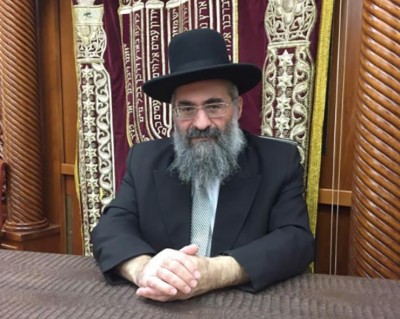
Our sages teach us that the Book of Esther and the Holiday of Purim will always be celebrated amongst the Jewish nation. The miracles of our Final Redemption are destined to eclipse all the other miracles and their remembrances, but the celebration of Purim will remain with us forever. What is so special about the story of Purim? It is the unbelievable danger to which our nation had fallen, and the subsequent salvation which depended on not a single open miracle!
There is an occurrence alluded to in Sefer Nevi’im regarding Hezkiah the king of Israel with a similar theme. The prophet Isaiah approached him with a dire prediction that he would die and lose all hope for Olam Haba (the Future World), and no prayer would help. Upon hearing this, King Hezkiah responded to the prophet: Finish your words and leave, for I have a tradition from the House of my ancestor King David, that even if the executioners” sword is hanging over one’s head, he should not give up hope and cease to pray. Let’s focus on a similar theme in the Megillah and see how Hashem protected His Children.
Halfway through the Purim story, Esther is faced with an impossible task. Her cousin and mentor, Mordechai the Tzaddik, asks her to endanger her life on behalf of her nation. Of course, we can expect no less from someone as righteous as Queen Esther. However, our sages make clear that actually, Esther viewed Mordechai’s command as an assured forfeiture of her life for an impossible outcome. Mordechai had told her to approach her husband the King on pain of death, without a logical plan on how to undue the royal decree of destruction over her nation. But even facing such terrible odds, she took the advice of the Tsaddik and Hashem did not abandon her.
When she approached the king, she asked that he throw a private party for himself and his chief advisor the wicked Haman. Esther would be the hostess and pour the wine. Our sages find a hint to her intent in the words of the verse: “…let Your Majesty and Haman come today to the feast that I have prepared for him (Esther 5:4).” In Hebrew, the first letter of these words spells out Hashem’s ineffable Name. This alludes to Esther’s plea and prayer that Hashem reveal His hand and have mercy on His children.
On the surface, this action of hers seems most bizarre. Why would she risk her life and approach the king, only to ask for him to throw a party?! The Talmud (Megillah 15) teaches us that Esther had a few things fleeting across her mind at the time. Rebbi Eliezer says that she prepared a feast to provide a setting for Haman to find disfavor in the eyes of the king. Rabbi Yehoshua says that she set a feast of bread and wine with the hope that Hashem would notice her efforts and answer her prayer. Rav Yehuda says that she invited Haman and the king so that they not suspect she was Jewish and anticipate her intervention on behalf of her people. Rav Nechemia says she prepared the feast in order to cause the Jews to pray harder. Up until now, they assumed they have a “sister” in a position of power, but when they would see her feasting with the enemy, they would again rely solely on Hashem.
Rabbi Yossi says Esther acted this way to find a pretext for assassinating Haman’s reputation in front of the king. Rabbi Menasya says Esther did this so that Hashem have mercy on His children and perform a miracle for them. Rabbi Yehoshua Ben Korha says that she invited only Haman and the king to the feast so that the king suspects her relationship with Haman. If he suspected her of having an affair, he would kill her and Haman and rescind Haman’s decree. Rabbi Gamliel says Esther recognized that the king was fickle and hoped he would reassess Haman’s loyalties if he saw him often enough. Rabbi Eliezer HaModai says that she wanted to make everyone jealous of Haman’s special attention. Rabba says she did it in order to bring Haman to the greatest heights of honor, so that his “…pride [would] come before [his] destruction (Mishlei 16:18).
The Gemara relates that Rabba bar Ahuva happened upon Eliyahu HaNavi and asked him which opinion above was correct. Eliyahu answered him that they all were! We see from this Gemara how Esther did not give up, even if her chances of success were minimal. She created an opening in her heart for Hashem to perform a miracle, and in the end, as we all know, Hashem did perform a miracle. Haman and his ten sons were hung, and the decree to obliterate the Jews was turned on its head. Esther is recognized as the heroin of this episode in our history because she did not give up. She did everything in her power to save her people, but also recognized that in the end, everything is in the Hand of Hashem. May we all merit to witness Hashem’s Hand in our lives and may we all be worthy of our own miracles. May Hashem send us the Final Redemption, Amen v’Amen.
By BJL Staff
Purim: A Lesson For Eternity
Typography
- Smaller Small Medium Big Bigger
- Default Helvetica Segoe Georgia Times
- Reading Mode











